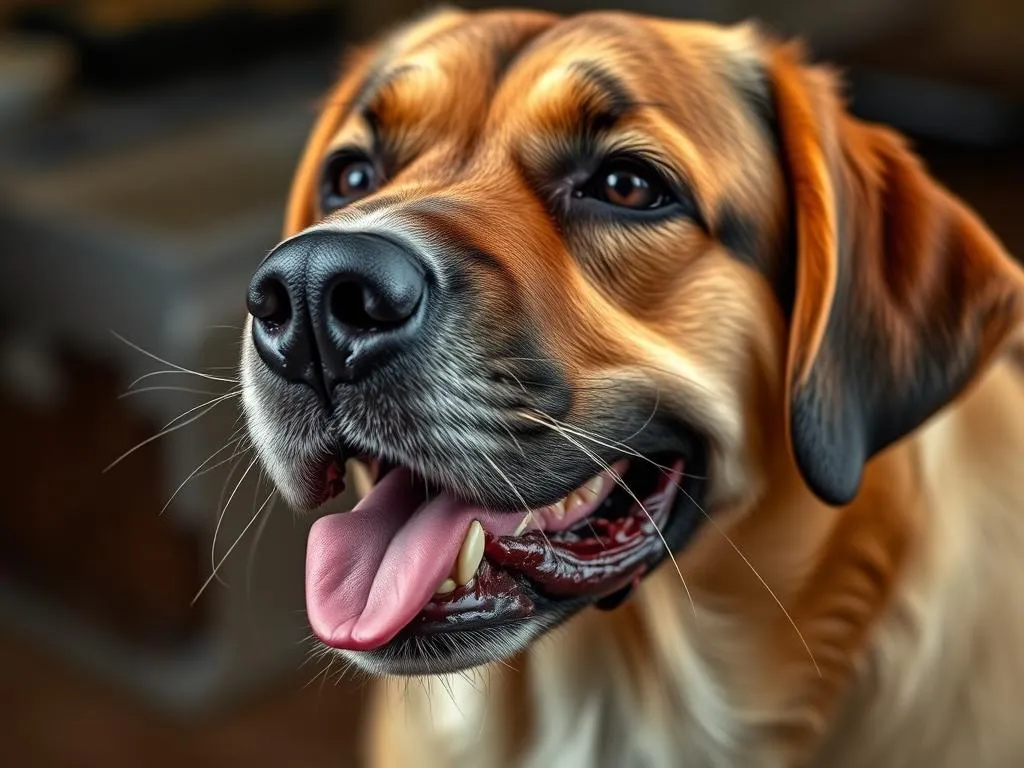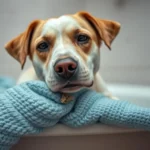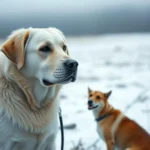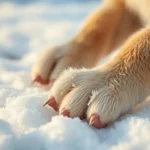
Introduction
Dog health care encompasses a wide range of topics, from proper nutrition to regular vet visits. One often overlooked aspect of canine health is slobbering, a common yet sometimes concerning behavior in dogs. In this article, we’ll specifically address the question, why do dogs slobber, examining the various reasons behind this behavior and helping pet owners understand when it may indicate a health issue. By the end of this piece, you will have a comprehensive understanding of slobbering in dogs and how to address any concerns that may arise.
Understanding Dog Salivation
What is Salivation?
Salivation is the production of saliva, a clear liquid that plays a crucial role in the digestion and overall health of dogs. While all dogs produce saliva, there’s a difference between normal salivation and excessive salivation. Normal salivation occurs during activities like eating, drinking, or when a dog is excited. Conversely, excessive salivation, or drooling, can be a sign of an underlying health issue that warrants further investigation.
Anatomy of a Dog’s Mouth
To better understand why do dogs slobber, it’s essential to know the anatomy of a dog’s mouth. Dogs have three pairs of major salivary glands: the parotid, mandibular, and sublingual glands. These glands produce saliva that aids in digestion by breaking down food and facilitating swallowing. Saliva also helps maintain oral health by neutralizing acids and providing enzymes that combat bacteria.
Common Reasons Dogs Slobber
Normal Causes of Slobbering
Dogs may slobber for various normal reasons, including:
- Excitement or Anticipation: Just like humans salivate when they think of delicious food, dogs may drool when anticipating meals, treats, or playtime.
- Breed-Specific Tendencies: Certain breeds, such as Bulldogs and Saint Bernards, are more prone to slobbering due to their physical characteristics. Their loose skin and facial structure can lead to increased drooling.
- Temperature Regulation: Dogs cool themselves primarily through panting, which can lead to salivation. When they are hot, they may drool more than usual.
Health-Related Causes of Slobbering
While slobbering can be normal, it can also be a sign of health issues. Here are some common health-related causes:
Dental Issues
- Periodontal Disease: Inflammation and infection of the gums can lead to excessive drooling. Dogs may also experience bad breath and difficulty eating.
- Tooth Decay: Similar to humans, dogs can suffer from tooth decay, leading to increased salivation.
Gastrointestinal Problems
- Nausea: Dogs experiencing nausea may drool excessively. This could be due to various factors, including dietary indiscretion or motion sickness.
- Motion Sickness: Some dogs drool more during car rides, especially if they are not accustomed to traveling.
Oral Health Concerns
- Foreign Objects: If a dog has something lodged in their mouth, such as a stick or bone fragment, it can lead to increased salivation.
- Oral Tumors or Lesions: Growths or lesions in a dog’s mouth can cause discomfort and drooling.
Neurological Issues
- Seizures or Other Disorders: Neurological issues can manifest in various ways, including excessive drooling. If a dog shows signs of confusion or disorientation, it could be a serious concern.
Poisoning or Toxicity
Certain toxins can lead to increased salivation. Common household items like chocolate, certain plants, and human medications can be harmful to dogs, resulting in excessive drooling.
When to Be Concerned About Slobbering
Signs of Abnormal Slobbering
As a responsible pet owner, it’s essential to monitor your dog’s slobbering habits. Some signs that may indicate abnormal slobbering include:
- Sudden Increase in Slobbering: If you notice a drastic change in your dog’s drooling habits, it could be a cause for concern.
- Accompanying Symptoms: If excessive slobbering occurs alongside symptoms like vomiting, lethargy, or loss of appetite, it’s time to consult a veterinarian.
Situations Requiring Immediate Veterinary Attention
Certain situations warrant immediate veterinary care:
- Signs of Distress or Pain: If your dog appears to be in pain or discomfort, it’s crucial to seek veterinary assistance.
- Ingestion of Toxic Substances: If you suspect your dog has ingested something toxic, contact a vet immediately.
- Severe Dehydration: Excessive drooling can lead to dehydration, which requires prompt treatment.
Diagnosing the Cause of Excessive Slobbering
Role of a Veterinarian
When you bring your dog to the vet for excessive slobbering, the veterinarian will play a crucial role in diagnosing the issue. A professional diagnosis is essential for determining the underlying cause of the slobbering. Common diagnostic tests may include:
- Blood Tests: These can help identify potential infections or organ issues.
- X-rays: Imaging can reveal foreign objects or dental problems.
- Oral Examinations: A thorough check of your dog’s mouth can help identify dental issues or lesions.
Home Observations to Share with the Vet
To aid in the diagnostic process, consider noting the following observations before your vet visit:
- Changes in Behavior: Has your dog been more lethargic than usual or shown signs of distress?
- Tracking Drooling Frequency and Triggers: Keeping a diary of when your dog slobbers can help the vet identify patterns and potential causes.
Treatment Options for Excessive Salivation
Home Remedies and Care
If your dog is slobbering excessively but the cause is not serious, there are several home remedies and care techniques you can try:
- Maintaining Oral Hygiene: Regularly brushing your dog’s teeth and providing dental chews can help maintain oral health and reduce slobbering.
- Dietary Adjustments: Consult with your veterinarian about the best diet for your dog, as certain foods may exacerbate drooling.
- Hydration Tips: Ensure your dog has constant access to fresh water, as dehydration can worsen drooling.
Veterinary Treatments
If the slobbering is due to a medical condition, your veterinarian may recommend specific treatments:
- Medications: Depending on the underlying cause, your dog may be prescribed anti-nausea medications, pain relief, or antibiotics.
- Surgical Options: In cases of dental issues or tumors, surgical intervention may be necessary to resolve the problem.
Preventive Measures for Dog Health
Regular Veterinary Check-ups
Routine vet visits are crucial for maintaining your dog’s health. Regular dental check-ups can prevent oral health issues that lead to slobbering. Additionally, vaccinations and overall health monitoring can help catch potential problems early.
Proper Nutrition and Hydration
A balanced diet contributes significantly to your dog’s health. Consult with your vet for tailored dietary recommendations, and encourage your dog to drink plenty of water to stay hydrated.
Training and Socialization
Training can help reduce anxiety-related slobbering in dogs. Creating a structured environment for your dog can minimize excitement-induced drooling. Additionally, proper socialization can help your dog feel more comfortable and reduce stress.
Conclusion
Understanding why do dogs slobber is essential for every dog owner. While slobbering can be normal, it can also indicate underlying health issues that require attention. By monitoring your dog’s health and recognizing the signs of abnormal slobbering, you can ensure your furry friend remains happy and healthy. Always consult your veterinarian if you have concerns, as they can provide the best guidance tailored to your dog’s specific situation.
Frequently Asked Questions (FAQs)
Is slobbering normal for all dogs?
Yes, slobbering can be normal for many dogs, especially during times of excitement or anticipation. However, excessive drooling may require further investigation.
Can slobbering be a sign of a serious condition?
Absolutely. While some slobbering is normal, excessive drooling can indicate health issues such as dental problems, gastrointestinal upset, or toxicity.
What breeds are most prone to slobbering?
Breeds with loose skin and larger jowls, such as Bulldogs, Saint Bernards, and Bloodhounds, are more prone to slobbering due to their physical characteristics.
How can I reduce my dog’s slobbering?
Maintaining good oral hygiene, providing a balanced diet, and ensuring your dog is well-hydrated can help manage slobbering. If slobbering persists or increases, consult your veterinarian for further advice.









